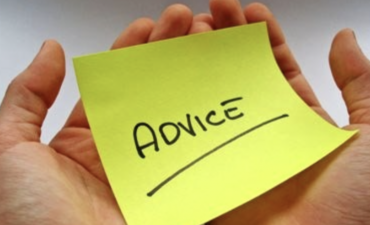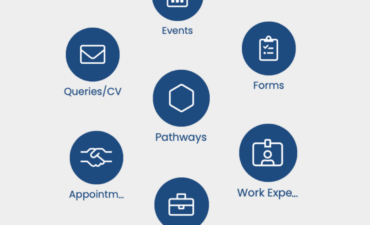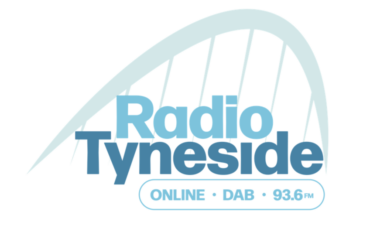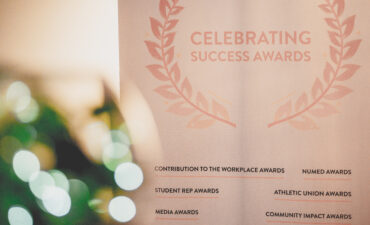Summary
Joel Bland has just graduated from Journalism, Media and Culture at Newcastle University and is now entering the world of freelance journalism. Now working for Metro Radio, Bauer Media Group, and Snack Media, Joel shares his honest experience and advice on the transition from university to the journalism industry.
DISCLAIMER: Answers have been edited to be more concise.
WATCH: Scroll to the bottom of this page to watch the full interview with bonus questions and no cuts!
How have you been finding the transition from university to the world of work?
It has been fairly difficult, especially, you know, we’re speaking on an MCH Newsletter here, so most people will be trying to get jobs in the media, specifically journalism. The North East hasn’t got as many jobs available as Manchester Media City. Down in London as well there’s plenty of jobs, so in the North East it’s been quite difficult.
There isn’t a whole lot of guidance, but I’d say that persistence and annoying places for placements is definitely key. Throughout your final year, the earlier you start looking for jobs and placements and experiences the better. I don’t know any person in recruitment who’s wanted to even know what grades I’ve got in anything, they all ask about what experiences I’ve done.
When did you start looking for, and successfully finding, work in the journalism industry?
My first real job in journalism was for an organisation called Vavel, which is completely voluntary. I will say, if you’re wanting to go into journalism, if you’re not willing to do any voluntary jobs, then it genuinely isn’t the industry for you because that is seriously the only way in.
“You have to accept that for at least a certain period, you’re going to be working for free.”
There’s a common misconception that you’re going to be headhunted, but if you don’t put yourself out there and advertise and market yourself, it’s going to be extremely hard. So it was halfway through second year I got a job at Vavel and I was writing articles based on the Premier League and more specifically Newcastle.
What have you found the most challenging about finding work in the industry?
Like I said, location in the North East it’s very difficult because there’s not a whole lot of opportunities available, so it’s extremely difficult just finding places. If you’re volunteering, it isn’t as hard, but if you are wanting to find paid work straight away, I’d say that’s the most difficult thing. I’d say you have to accept that for at least a certain period, you’re going to be working for free.
What skills have you needed to use the most in your first few months as a freelance journalist?
I’d say definitely the conventions of journalism. You can naturally just be a good writer, but what we’ve been taught, like the inverted pyramid with the most important information at the top, the conventions of journalism have been very, very useful. Also website creating to write articles. I think it’s very useful to have a good knowledge of how to use the likes of WordPress and stuff like that.
“I’d say networking in journalism is the number one skill you have to have”
Then I’d say interpersonal skills that you get through uni anyway, when you’re meeting people or speaking to lecturers. I’d say networking in journalism is the number one skill you have to have regardless of how good of a writer you are.
How important has your LinkedIn presence been and how would you advise others to use LinkedIn to their advantage?

LinkedIn is seriously important. I recommend anyone who doesn’t have it and is wanting a job in journalism – or any sector – you should be on LinkedIn. It’s like marketing yourself. You need to sell yourself to people; people aren’t going to know who you are without using LinkedIn.
“You need to sell yourself”
If I do an experience or placement somewhere, or do a freelance job for something or someone, I’ll put it on LinkedIn, I’ll tag them and then it just speaks for itself and networks. If you’re tagging a company, people from that company will see you. You occasionally might get DMed, or you can DM people asking for experiences and jobs, which I’ve done directly through LinkedIn. It’s just about being proactive, and LinkedIn gives you the platform to do that.
“It’s just about being proactive, and LinkedIn gives you the platform to do that.”
How do you use other social media platforms?
I’d say the most active platform I’m on is Twitter. I’d say it’s absolutely vital that you’re active on Twitter, you’re active on LinkedIn. If I publish an article, I share it on all of them, so I’ll put it on my Instagram story, I’ll put it on my Facebook story. It’s just about getting exposure, getting as much exposure as you can, utilising all social media. I’d say for journalism, Twitter and LinkedIn are definitely the most important.
What would you advise students to do during their final year of university to help with their transition to a journalism career after graduation?
Firstly, I’d say network yourself. Make sure you’re on LinkedIn. I know in third year you can stress about grades, and it’s very natural for someone to focus on uni. I’m not encouraging anyone to just forget about uni or trying to secure the best grade you can. But from my experience and other journalists, no one has approached me asking for what grade I’ve got. It’s really not grade orientated*, experience is looked at as something way more beneficial in terms of what employers want to see. So I’d say if you’re in your third year, split your work balance between doing uni stuff and actually trying to secure experiences.
*Editor’s note: Thank you so much Joel for this excellent advice! Joel is absolutely right that it’s important to be proactive, market yourself and get as much experience as you can. While it’s true that some employers look more at experience than at specific grades, it’s also true that many employers do look at grades – a degree from Newcastle University is an impressive achievement to any employer and a good classification goes a long way too!
How are you finding the work-life balance of journalism?
In a way, you’re always sort of working because if something breaks then I put it on my Twitter straight away. You have to always be active on WhatsApp, checking in with your contacts. With Metero Radio, their freelance reporter shifts are actually 9-to-5, whereas with Snack Media there’s no rota, you just put yourself down for a day and you might get three articles up or write a long feature in a day.
So far, it’s not been too challenging, but when I’ve been speaking to other top journalists, local and nationally, journalism is a really tiring job, and it isn’t paid amazing, especially not until you get to a high role. For me, it hasn’t been too bad so far but I expect once I get things in full swing, it’s going to be fairly tiring.
What are the three main takeaways of this interview for current second and third year students?
Number 1, don’t stress about your grade. In journalism and media specifically, your grade is not as important as your experiences and work placements and everything you’ve done in terms of job opportunities. Focus on getting placements and experiences.
Secondly, you’ve got to be proactive. Don’t wait until a job opportunity comes to you because it’s ridiculously rare.
Thirdly, sell yourself online. You’ve got to market yourself, you’ve got to network. Publish absolutely anything relevant, make sure you’re tagging people, tagging organisations, and just publish any piece of work you do online so people can see it. it’s about getting as much exposure as possible.





